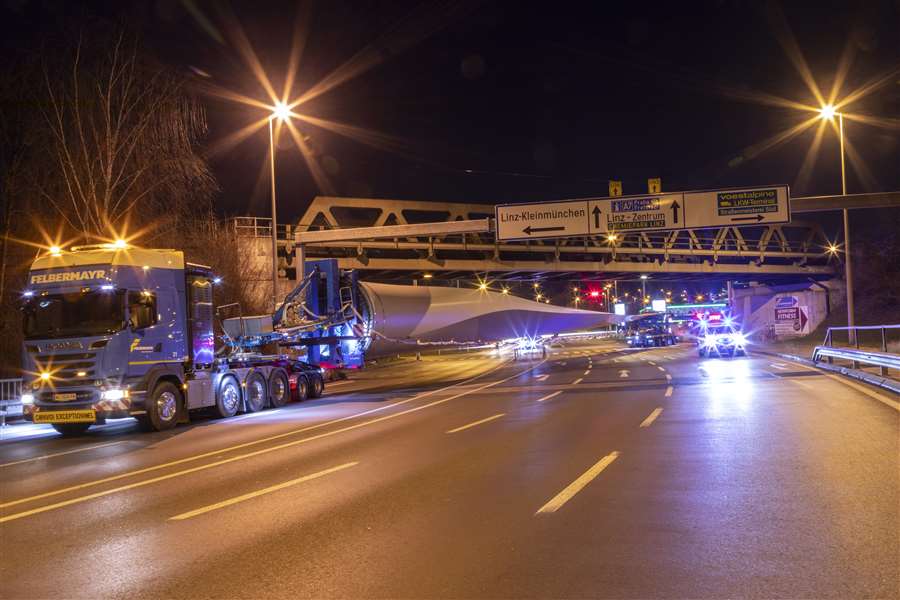
Image: Felbermayr
Germany’s Heavy Transport Crisis Worsens, Alarming ESTA
Germany is currently grappling with a deepening heavy transport crisis that threatens to have far-reaching consequences for the European economy. The European association for abnormal road transport and mobile cranes (ESTA) has sounded the alarm, expressing concerns that the situation is deteriorating despite reassurances from both regional and national authorities who claim to be addressing industry concerns.
Regulatory System in Jeopardy
The heart of the issue lies in the breakdown of Germany’s regulatory system governing heavy and abnormal transports. Prolonged delays in obtaining permits have brought the system to the brink of collapse. ESTA members from across Europe voiced their concerns during a recent board meeting, shedding light on the severity of the problem.
Dire Impact on International Operations
While the crisis primarily affects German companies, its ripple effects are felt by numerous international operations conducting business within Germany, particularly in the country’s extensive manufacturing sector.

Ton Klijn, Director of ESTA, expressed the gravity of the situation, stating, “A large percentage of abnormal loads in Germany are being forced to travel without a permit because obtaining one is almost impossible within a reasonable timescale.”
Costly Delays for Key Industries
Permits for vital projects, such as the delivery of wind turbines, are now taking between three to six months to secure. These extensive delays result in increased costs and hinder the progress of projects essential for achieving Europe’s net-zero target.
Infrastructure Woes Compound the Crisis
The crisis’s roots lie in failing regulatory systems and the deplorable state of Germany’s roads and bridges. Abnormal transports are often forced to take circuitous and lengthy routes, adding to delays and costs. Some bridges are even deemed unsafe for heavy transports, limiting the available routes.
A manager from a prominent construction equipment manufacturer emphasized, “The effects of the infrastructure problems, especially the dilapidated bridge structures, are manifold. Many bridge structures may not be used by our heavy transports, so there is virtually no direct route for our equipment without detours.”
Appeal for External Intervention
ESTA has contemplated seeking assistance from Brussels to address the issue with German authorities. However, thus far, it has been considered an internal German matter. Klijn urged reconsideration, saying, “We hope that they will reconsider when they realize the damage the current situation is doing to Europe’s economy as a whole.”
Bureaucratic Hurdles
While ESTA acknowledges that infrastructure improvements take time, heavy and abnormal transport companies view German bureaucracy as overly rigorous and unnecessary. Drivers navigating abnormal loads often grapple with paperwork spanning 100 to 300 pages.
Rail and Canal Proposals Face Challenges
Some voices have advocated for increased use of canals and railways for heavy loads. However, this well-intentioned suggestion is fraught with challenges. Many railway systems are already near capacity, and the size of abnormal loads often precludes them from using existing tunnels and locks. Moreover, transferring loads to barges or wagons and then back onto roads is a cumbersome process.
Klijn summed up the situation, asserting, “The fundamental issue is that too many of our political leaders simply do not understand the importance of an industry such as ours, the urgency of the situation, and what our members require for heavy transport operations to be safe and efficient.”

